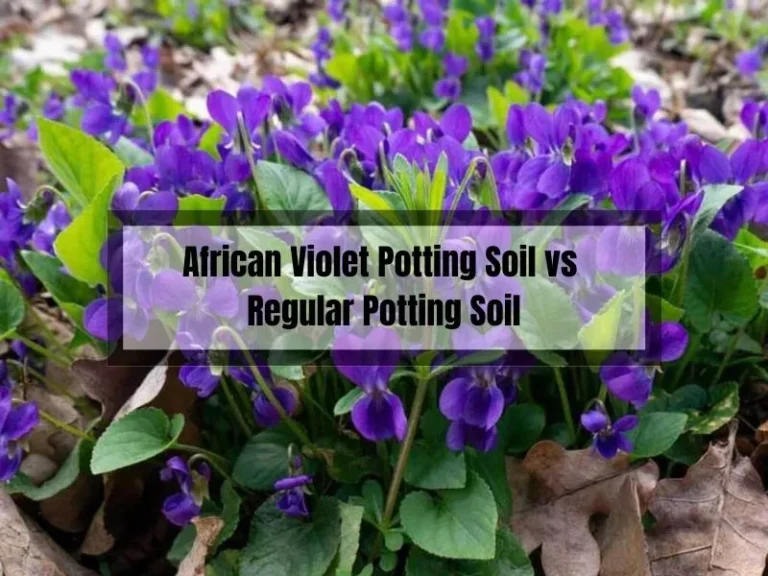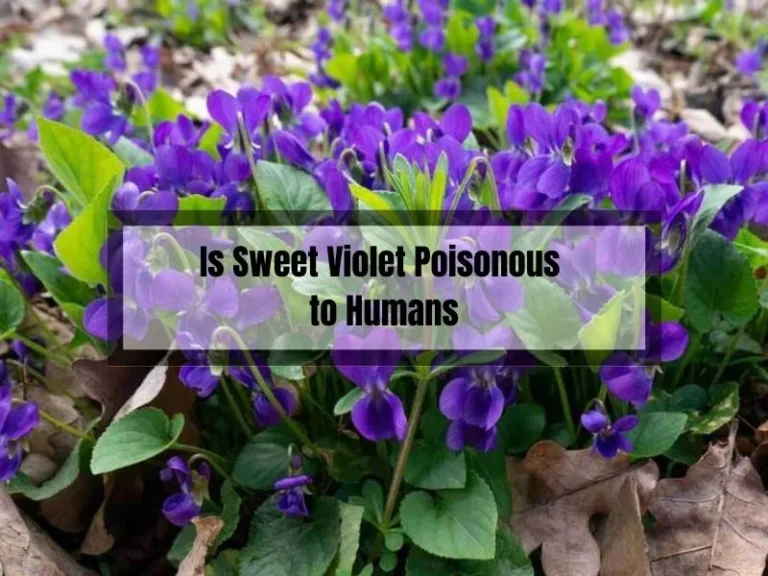Can You Really Use Cactus Soil for African Violets? Expert Advice for Healthy Growth
From Louise: Passionate about gardening, I specialize in plant care and flower knowledge. I’m here to share my expertise and assist with your gardening queries. Feel free to ask any questions or seek advice on lawn care—I’ll respond within 24 hours!
Are you considering using cactus soil for African violets? To answer the question – no, you can’t use cactus soil for African violets. While some suggest it, there are differences between cactus and African violet soil.
This article explores those differences, potential effects on your plants, and offers alternative soil options. Plus, we share professional tips for growing African violets.
Key Takeaways
- African violets have specific soil requirements that differ from those of cacti.
- While cactus soil can be used for African violets, it may not be the best choice due to differences in drainage, pH, and nutrient content.
- Alternative soil mixes that may be better suited for African violets include mixes that contain peat moss, vermiculite, and perlite.
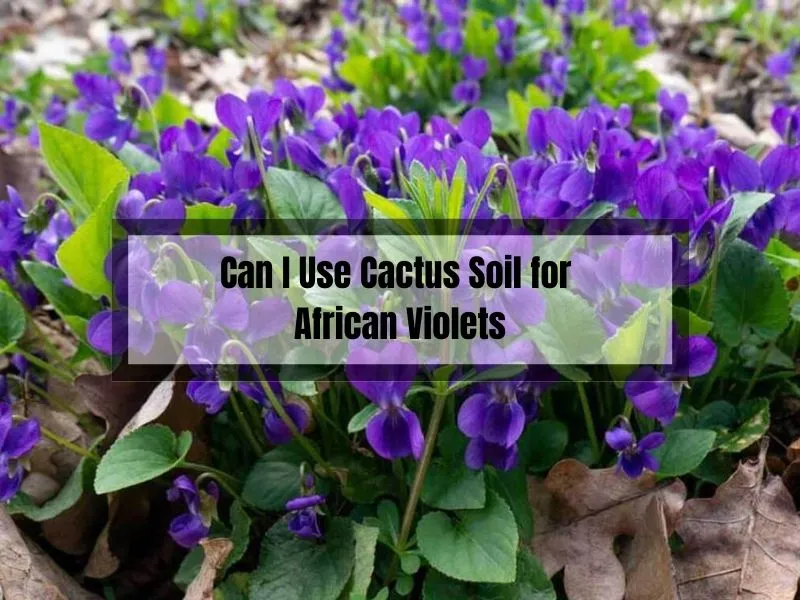
Can I Use Cactus Soil for African Violets?
If you’re wondering whether you can use cactus soil for African violets, the answer is no.
While cactus soil has some benefits, it’s not the best choice for African violets. Here are the pros and cons of using cactus soil for African violets, as well as the ideal soil components and pH for these plants.
Pros of Using Cactus Soil for African Violets
Cactus soil is well-draining, which can prevent root rot in African violets. It also contains sand or grit, which can help with aeration and drainage.
Additionally, cactus soil has a lower nutrient content, which can prevent over-fertilization and promote healthy growth.
Cons of Using Cactus Soil for African Violets
African violets prefer soil that retains moisture, while cactus soil is designed to dry out quickly. This can cause African violets to wilt and die. African violets also require soil that is slightly acidic, while cactus soil is often alkaline.
This can lead to nutrient deficiencies and poor growth. Finally, cactus soil may contain too much sand or grit, which can make the soil too coarse for African violets to thrive.
Soil Components
The ideal soil mixture for African violets should be well-draining, yet moisture-retentive.
A popular blend for African violets is a mix of peat moss, vermiculite, and perlite, in roughly equal parts. This combination creates the perfect balance of drainage and moisture retention, keeping your plants happy and healthy.
Soil pH
Another crucial aspect of African violet soil is its pH level. These plants prefer a slightly acidic environment, with a pH range of 6.0 to 6.5 being ideal. When the pH is off, your African violets might struggle to absorb essential nutrients, which could lead to poor growth and unhappy plants.
To ensure your African violets are growing in the optimal pH range, you can use a pH meter or test kit to check the acidity of your soil mix. If it’s not within the desired range, there are ways to adjust it, such as adding organic matter or adjusting the watering schedule.
In summary, while cactus soil may seem like a good option for African violets, it’s not recommended. Instead, use a potting mix specifically designed for African violets, which will provide the right balance of moisture retention, aeration, and nutrients. If you’re set on using cactus soil, try mixing it with other soil components to create a more suitable growing medium for your African violets.
Differences Between Cactus Soil and African Violet Soil
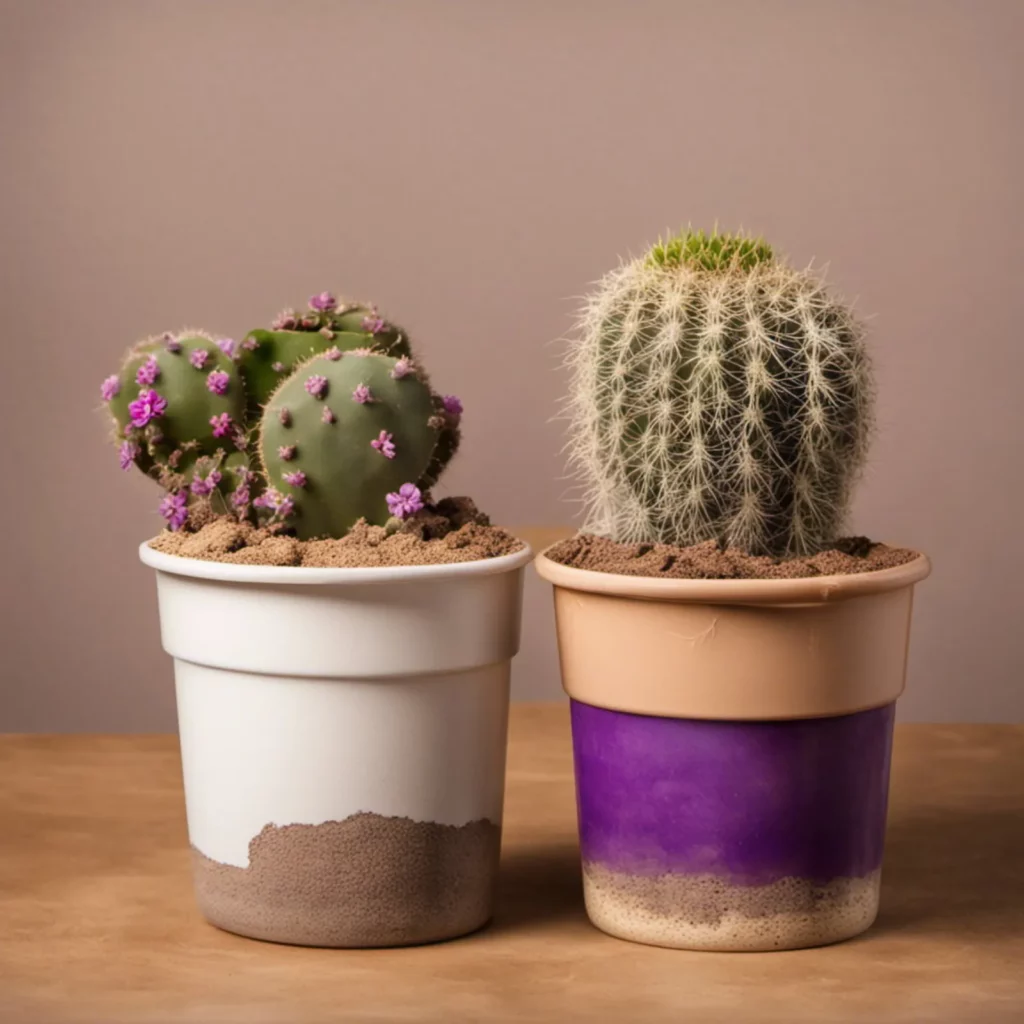
Water Retention
Cactus soil is designed to be well-draining and dry out quickly, which is ideal for cacti that are native to arid environments.
On the other hand, African violet soil needs to retain moisture in order to keep your plants healthy and hydrated. Using cactus soil for your African violets could cause them to wilt and die due to lack of moisture.
pH Levels
African violets prefer a slightly acidic soil with a pH range of 6.0 to 6.5. Cactus soil, on the other hand, is typically more alkaline with a pH range of 7.0 to 8.5.
Using cactus soil for your African violets could cause the pH level to become too high, which can lead to nutrient deficiencies and poor growth.
Nutrient Content
African violets require specific nutrients in order to thrive, including nitrogen, phosphorus, and potassium.
While cactus soil does contain some of these nutrients, it may not have the proper balance for African violets. African violet soil is specifically formulated to provide the right amount of nutrients for these delicate plants.
Related Posts:
How to Modify Cactus Soil for African Violets
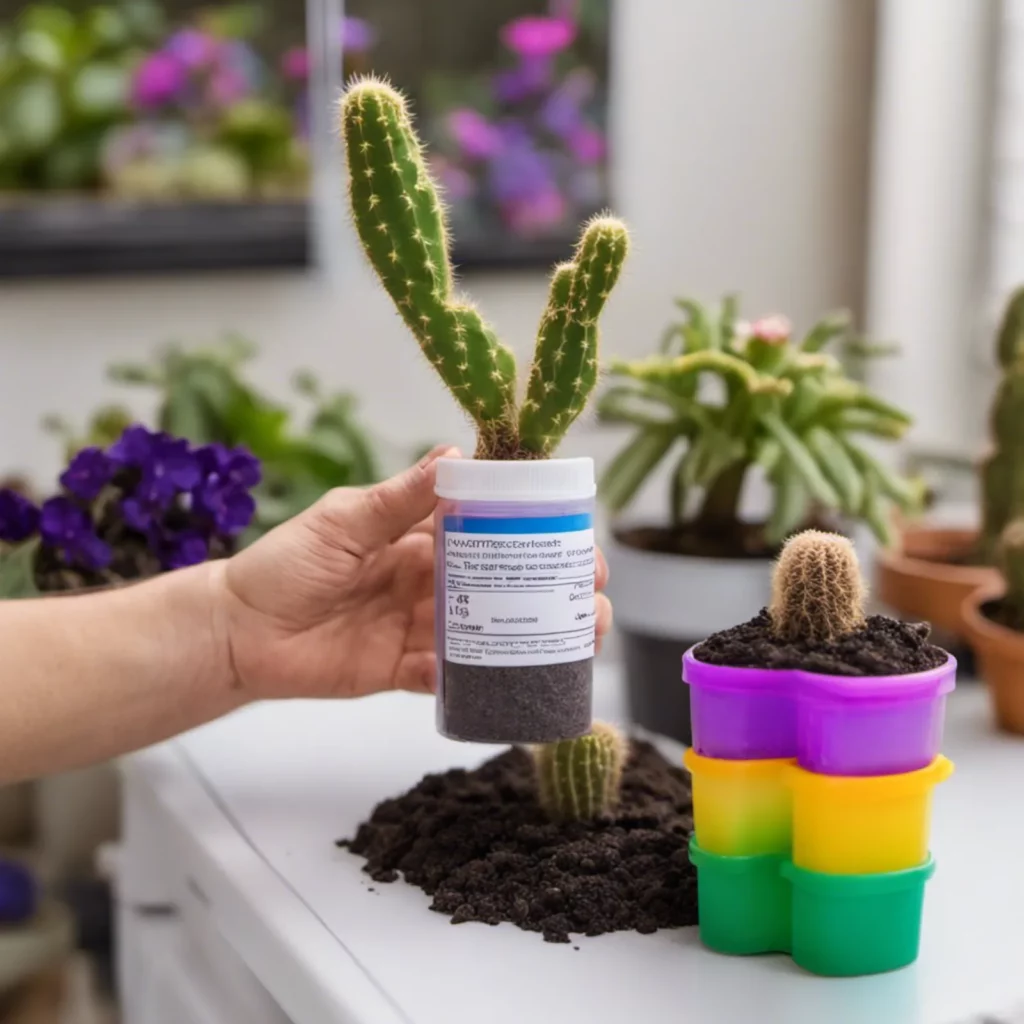
Adding Organic Matter
If you have cactus soil and want to use it for your African violets, you’ll need to add organic matter to it.
Cactus soil is low in organic matter, so adding materials like peat moss, coconut coir, or well-aged compost in a 1:1 ratio can help increase water retention and nutrient availability for your African violets. This will create a more suitable environment for them to grow.
Adjusting Soil pH
African violets prefer slightly acidic soil with a pH range of 6.0 to 6.5. If your modified cactus soil doesn’t fall within this range, you can adjust the pH to make it more suitable.
To increase acidity, add small amounts of sulfur or use an acidic fertilizer specifically formulated for African violets. To decrease acidity, incorporate small amounts of lime or use a more alkaline fertilizer. Adjust the pH gradually and test it as you go to avoid overcorrection.
Remember, modifying cactus soil for African violets requires adding organic matter and adjusting the pH. By following these steps, you can create the ideal soil conditions for your African violets to thrive.
Effects of Using Cactus Soil for African Violets
If you’re wondering if you can use cactus soil for African violets, the answer is yes. However, there are pros and cons to using cactus soil for these delicate plants.
Pros of Using Cactus Soil for African Violets
Cactus soil contains all the essential ingredients that African violets need to thrive, such as perlite, vermiculite, peat moss, coco coir, and coco peat.
These ingredients provide excellent drainage, which is crucial for African violets as they don’t like to sit in water. Additionally, cactus soil is lightweight and porous, allowing air to circulate around the roots, preventing root rot.
Cons of Using Cactus Soil for African Violets
While cactus soil can be a suitable option for African violets, it’s not the best choice. The main issue with cactus soil is that it’s too dry for African violets, which require soil that retains moisture.
Using cactus soil for African violets can lead to problems like stunted growth, poor flowering, or even root rot if you don’t take the necessary precautions.
How to Use Cactus Soil for African Violets
If you decide to use cactus soil for your African violets, you need to take some steps to make it more suitable for them. Here’s what you need to do:
- Mix the cactus soil with other ingredients such as peat moss, perlite, and vermiculite to create a well-draining potting mix.
- Add some water to the potting mix to make it slightly moist.
- Fill the pot with the potting mix and plant your African violets.
- Water your African violets regularly, but make sure not to overwater them.
- Fertilize your African violets with a balanced fertilizer every two weeks during the growing season.
Alternative Soil Mixes for African Violets
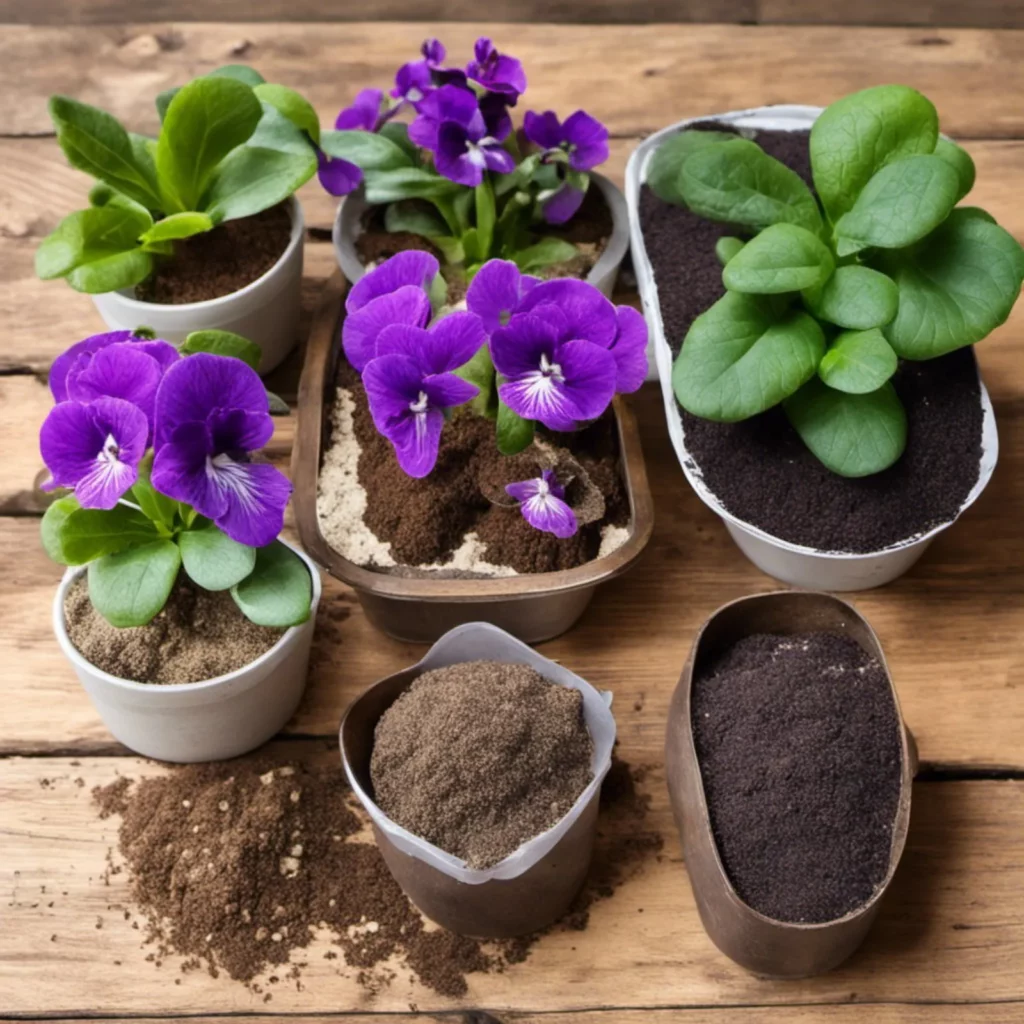
If you’re not a fan of using cactus soil for your African violets, there are alternative soil mixes that can work just as well. Here are some options to consider:
African Violet Potting Mix
African violet potting mix is specifically formulated for these plants and contains the right balance of peat moss, vermiculite, and perlite. This mix can be found at most garden centers and online.
Peat Moss Mix
A peat moss mix is another soil mix that works well for African violets. It is made up of peat moss, perlite, and vermiculite and is great for plants that need good drainage.
You can make your own peat moss mix by combining equal parts of peat moss, perlite, and vermiculite.
Coconut Coir Mix
Coconut coir is a sustainable alternative to peat moss and can be used as a base for your African violet soil mix.
It’s made from the fibers of coconut husks and is a renewable resource. To make a coconut coir mix, combine equal parts of coconut coir, perlite, and vermiculite.
Vermiculite Mix
Vermiculite is a mineral that is often used in soil mixes because it helps with water retention. To make a vermiculite mix for your African violets, combine equal parts of vermiculite, perlite, and peat moss.
Perlite Mix
Perlite is a volcanic mineral that is often used in soil mixes because it helps with drainage. To make a perlite mix for your African violets, combine equal parts of perlite, peat moss, and vermiculite.
When choosing a soil mix for your African violets, it’s important to consider their specific needs.
African violets prefer well-draining soil that is slightly acidic, so make sure to choose a mix that meets those requirements. With the right soil mix, your African violets will thrive and bloom beautifully.
Professional Tips for Growing African Violets
If you’re new to growing African violets or want to take your plants to the next level, here are some professional tips to help you achieve success.
1. Soil
Choosing the right soil mix is crucial for the health and growth of your African violets. A well-draining, porous, and fertile soil mix is essential for proper growth.
A good soil mix for African violets should contain vermiculite, perlite, peat moss, coco coir, and coco peat. You can also use a commercial potting mix specifically designed for African violets.
2. Watering
Watering African violets can be tricky. It’s important to use room temperature water and avoid saturating the crown of the plant.
Water the plant from the bottom by placing it in a saucer of water and allowing the soil to soak up the water from the bottom. This helps prevent crown rot and keeps the plant healthy.
3. Light
African violets need bright, indirect light to thrive. Direct sunlight can burn the leaves and cause damage to the plant.
Place your African violets near a window that receives bright, indirect light for at least six hours a day. If you don’t have a window that provides enough light, you can use artificial light sources like fluorescent or LED lights.
4. Temperature and Humidity
African violets prefer temperatures between 65-75°F (18-24°C) during the day and 60-65°F (15-18°C) at night.
They also prefer a humidity level of around 50%. You can increase humidity levels around your African violets by placing a tray of water near the plant or by using a humidifier.
5. Fertilizer
African violets require regular fertilization to maintain their health and promote growth. Use a fertilizer specifically designed for African violets and follow the instructions carefully. Over-fertilization can damage the plant, so be careful not to apply too much fertilizer.
By following these professional tips for growing African violets, you can ensure that your plants remain healthy and beautiful. With a little care and attention, your African violets will thrive and bring joy to your home for years to come.
Frequently Asked Questions (FAQs)
Can I use cactus soil for other houseplants?
Cactus soil is specifically designed for plants that require excellent drainage and low moisture retention, like cacti and succulents. If you have other houseplants with similar requirements, such as some species of palms or dracaenas, you might be able to use cactus soil for them. However, it’s always best to research the specific needs of each plant before repotting.
How often should I repot my African violet?
African violets generally prefer to be slightly root-bound and don’t need repotting as often as some other houseplants. As a general rule of thumb, you should repot your African violet every 12-18 months or when you notice the roots starting to circle the pot. Repotting too often or into a pot that’s too large can stress the plant and slow down growth.
Can I use regular potting soil for African violets?
While you can use regular potting soil for African violets, you might need to modify it to provide the ideal growing conditions. Adding perlite or vermiculite to improve drainage and peat moss or coconut coir to increase moisture retention can create a more suitable environment for your violets.
Conclusion
In conclusion, it is important to choose the right soil for your plants to ensure their overall health and happiness. While cactus soil may not be the best choice for African violets, with a little modification and TLC, you can create the perfect soil mix to keep your plants thriving.
As a plant parent, it is crucial to be attentive to your plant’s needs, conduct research, and strive to provide the best possible care.
Related Posts:

